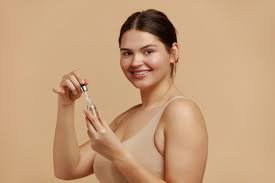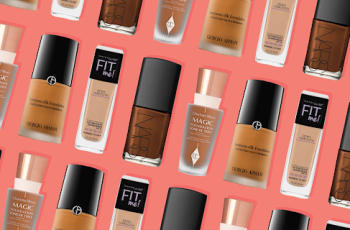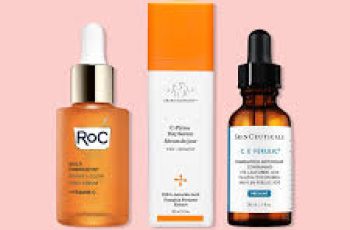
Alpha Arbutin and Beta Arbutin in Skin Care Products: A Comprehensive Guide
Arbutin is a widely used ingredient in skin care products aimed at treating hyperpigmentation. It works by inhibiting tyrosinase, the enzyme responsible for melanin production.
There are two forms of arbutin—alpha arbutin and beta arbutin—each with unique characteristics and benefits.
What is Arbutin?
Arbutin is a molecule used to lighten dark spots and even out skin tone by reducing melanin synthesis. Melanin is the pigment responsible for the color of your skin, hair, and eyes.
Overproduction of melanin leads to hyperpigmentation conditions such as melasma and postinflammatory hyperpigmentation (PIH).
The appeal of arbutin lies in its ability to provide skin lightening effects without the harsh side effects linked to hydroquinone, a powerful but controversial skin depigmenting agent.
Arbutin is available in over-the-counter products, unlike hydroquinone, which often requires a prescription.
Alpha Arbutin vs Beta Arbutin: Key Differences
Though both alpha and beta arbutin have the same chemical formula, their molecular structures differ slightly. This difference in rotational configuration affects their stability and effectiveness.
Alpha Arbutin: This form is synthetic and does not occur naturally in plants. It is considered more potent, blocking tyrosinase more effectively than beta arbutin.
Studies indicate alpha arbutin can be up to 10 times more effective than beta arbutin in reducing melanin production.
Beta Arbutin: Naturally found in several plants such as bearberry, cranberry, blueberry, and wheat. Beta arbutin is favored in natural and organic skincare products.
While slightly less effective than alpha arbutin, it still provides significant skin lightening benefits.
Sources of Arbutin
Alpha arbutin is created synthetically in labs to provide a pure and stable ingredient.
Beta arbutin is extracted from natural plant sources, especially the leaves of the bearberry plant, which has been traditionally used for its skin benefits.
There are also other arbutin derivatives, like deoxyarbutin, which are synthesized chemically and used in some skin care formulations.
How Arbutin Works on the Skin
Arbutin is structurally similar to hydroquinone, a well-known skin lightening agent. The main difference is that arbutin is hydroquinone bound to a sugar molecule.
This bond slows the release of hydroquinone, making arbutin gentler and safer for the skin.
Both alpha and beta arbutin inhibit tyrosinase, the enzyme responsible for catalyzing melanin production. By blocking this enzyme, arbutin reduces melanin synthesis, leading to lighter skin over time.
Benefits of Arbutin
Skin Lightening: Arbutin helps fade dark spots, uneven skin tone, and discoloration caused by sun exposure or inflammation.
Anti-inflammatory: Reduces skin inflammation, which is important because inflammation often worsens pigmentation.
Antioxidant: Protects the skin from free radical damage caused by UV rays and environmental pollutants.
Sun Damage Protection: While not a sunscreen, arbutin reduces pigmentation caused by UV exposure.
What Skin Conditions Can Arbutin Treat?
Arbutin is primarily used to manage hyperpigmentation conditions such as:
Melasma, which causes patchy brown or gray spots.
Postinflammatory hyperpigmentation (PIH), often occurring after acne or skin injuries.
Age spots and sunspots.
Because it also calms inflammation, arbutin helps prevent new pigmentation from forming.
Arbutin vs Hydroquinone: Safety and Side Effects
Hydroquinone is effective but often causes irritation and has been linked to ochronosis, a rare skin disorder. Arbutin is much gentler and less likely to cause these side effects.
Arbutin has lower melanocytotoxicity, meaning it’s less harmful to the pigment-producing cells.
Side effects of arbutin are usually mild, such as slight stinging or allergic dermatitis.
It does not cause ochronosis.
The Environmental Working Group rates arbutin as a very safe ingredient (rating 1).
However, because of its chemical similarity to hydroquinone, some regions, including the EU, Japan, and Australia, have banned arbutin in cosmetics.
Is Arbutin Safe During Pregnancy?
Arbutin releases hydroquinone slowly and in very small amounts, which reduces toxicity. Its low systemic absorption means it does not significantly enter the bloodstream and poses minimal risk to the fetus.
Currently, no studies show arbutin causes birth defects, making it generally safe during pregnancy, though consulting a healthcare provider is advised.
Which Skin Types Benefit Most from Arbutin?
According to the Baumann Skin Typing System, arbutin suits a variety of skin types, especially those prone to sensitivity and inflammation. These include:
Dry, Rosacea-Prone (DRPT, DRPW)
Dry, Sensitive (DSPT, DSPW)
Oily, Rosacea-Prone (ORPT, ORPW)
Oily, Sensitive (OSPT, OSPW)
Its anti-inflammatory properties help soothe irritated skin while lightening pigmentation.
Incorporating Arbutin Into Your Skincare Routine
Arbutin is water-soluble and does not penetrate the skin deeply on its own. To improve absorption:
Pair it with penetration enhancers like hyaluronic acid or oleic acid.
Avoid moisturizers high in saturated fatty acids, which can reduce effectiveness.
Apply arbutin serums before heavier creams and oils.
Combining arbutin with other skin-lightening agents often yields better results.
Environmental Impact of Arbutin
Currently, there is limited information about the environmental effects of harvesting plants for beta arbutin or producing synthetic alpha arbutin.
No significant concerns have been reported, but sustainable sourcing is always encouraged.
Evidence-Based Research on Arbutin
Clinical studies support arbutin’s effectiveness in reducing hyperpigmentation. Combining arbutin with other treatments enhances its effects and lowers the risk of side effects.
This makes arbutin a preferred ingredient in dermatological and cosmetic formulations.
Top Skin Care Products with Arbutin
Many reputable brands offer serums and creams containing alpha or beta arbutin. Alpha arbutin products tend to be more potent and are often found in clinical-grade skincare lines.
Beta arbutin is more common in natural or organic brands.
Choosing the right product depends on your skin type and preferences. A skin care quiz or professional consultation can help you decide.
Final Thoughts: Is Arbutin Right for You?
Arbutin is a versatile, effective, and safe ingredient for treating hyperpigmentation. While not as strong as hydroquinone, it offers a gentler alternative with fewer side effects.
Synthetic alpha arbutin offers higher potency, whereas natural beta arbutin is preferred for those seeking botanical products.
If you struggle with dark spots, uneven skin tone, or melasma, arbutin could be a valuable addition to your skincare routine.
Always patch-test new products and consult a dermatologist if you have concerns.


